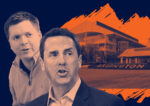With the Chicago Bears nearing the red zone to score a new stadium deal in Arlington Heights, residential real estate sellers and agents in the northwest suburb are hitting some extra points.
A recent analysis of housing prices in the northwest suburb found that even the idea of the NFL team moving to the area has been driving up median sale prices in the three ZIP codes closest to the new stadium site, the Chicago Tribune reported. In the year after the team announced plans to buy the shuttered Arlington International Raceway in October 2021 for $197 million, median sales price rose by 14 percent, while prices in the larger Chicago metro area rose only 5 percent.
The fact that prices rose amid historically fast interest rate increases and continued uncertainty about whether the stadium will be allowed means property owners are set to make even more selling a home when and if the stadium is built, some market players believe.
Multiple studies have found that home prices rose in most areas close to newly built stadiums, while two others found the opposite to be true in some cases.
Arlington Heights Mayor Tom Hayes said the suburb’s property value trajectory was already stronger than other areas because of its quality of life and schools, rather than the Bears’ plans to move.
In November, the village board unanimously approved a predevelopment agreement with the team. The agreement covered future zoning changes and public financing that the team requested, without guaranteeing the provision of any money or tax breaks. In addition, the board agreed to amend the overlay zoning district for the vacant 326-acre Arlington Racecourse in a move that will allow for a sports betting facility.
While the Bears have said they would redevelop the stadium portion of the project without using taxpayer dollars, the organization has requested local government assistance to subsidize costs of building infrastructure for the entertainment district and mixed use development around the stadium that will include housing, offices and retail. The total project cost has been estimated at $5 billion.
Read more

— Victoria Pruitt
